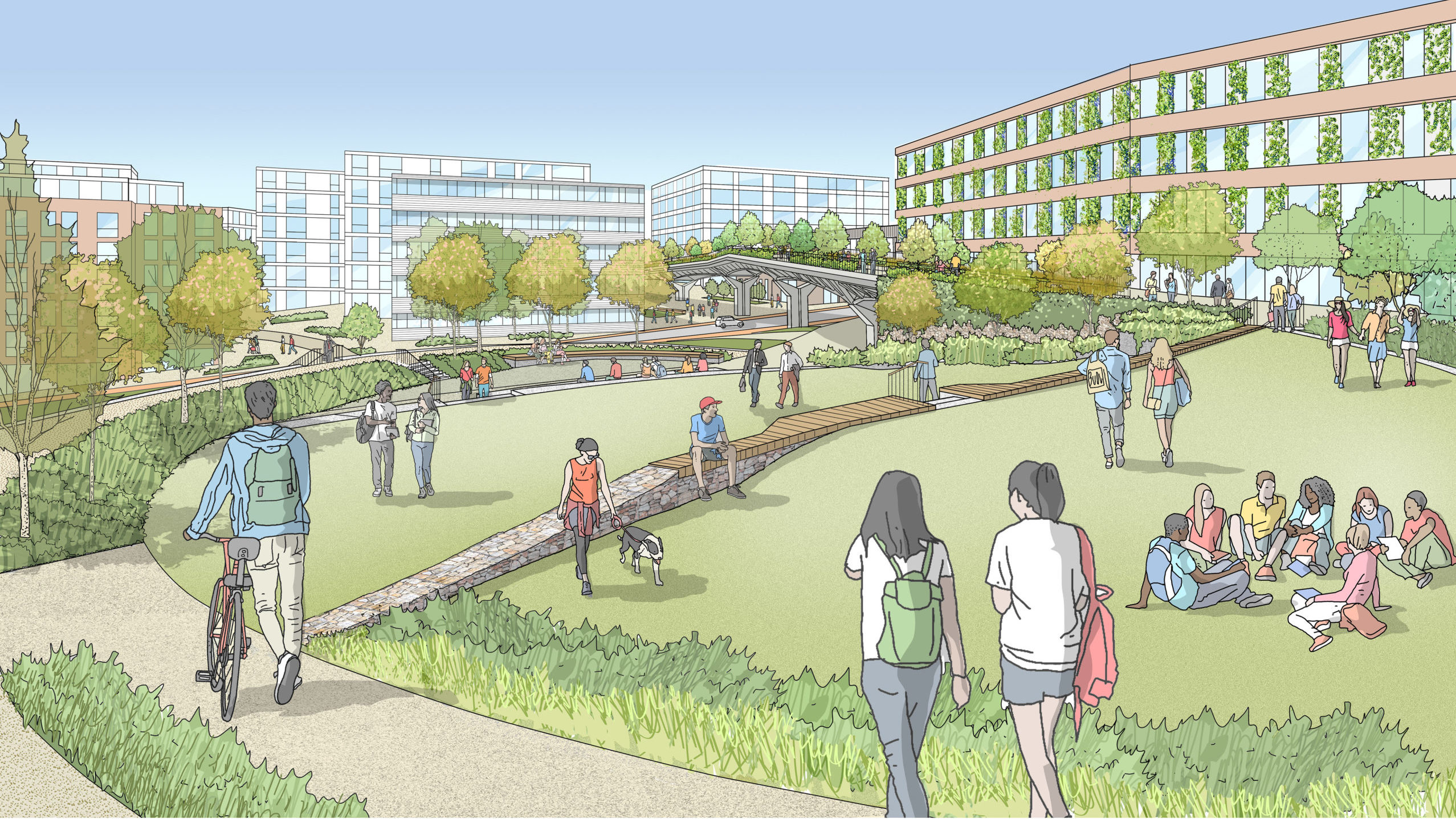Challenging the status quo to deliver transformational change
15.11.24 4 min read

The regeneration of our towns and cities has shifted up a gear over the past few years, with ambitious plans and an eye on the future of places helping to breathe new life into communities up and down the country.
As a result of this aspirational and innovative approach, a plethora of developments have emerged, delivering new workspaces, homes, refreshed public realm, and places to play. Put simply, there is a lot of best practice to take continued inspiration from.
We consistently use the learnings from our work and apply them, where appropriate, to new schemes. Indeed, there are many tried and trusted methods and principles within placemaking that are effective and utilising them can really help streamline the process when it comes to developing new masterplans and frameworks.
Challenging the status quo
It’s in our DNA to be aspirational and to challenge the status quo.
No two places are the same, and to really deliver the change that future generations will benefit from, a more creative, outside-the-box perspective is required.
This way of thinking is especially relevant against the backdrop of decarbonisation, the need to be kinder to people and the planet, and the importance of connectivity and community cohesion.
It is not easy to create places where the needs of people from all walks of life are met, but if you get it right, it can be a catalyst for growth, prosperity, and opportunity.
Spurring Salford’s renaissance
This ethos, which is central to everything we do – and a commitment to push the boundaries of what can be achieved – is perhaps best evidenced through Crescent Salford, a £2.5bn masterplan which is being delivered by ECF, our joint venture with Legal & General and Homes England, in partnership with Salford City Council and the University of Salford.
Covering 240 acres of the city, Crescent is poised to transform this part of Salford into a globally recognised destination for people to live, learn, work, play, and be active.
Comprising six unique – yet intertwined – zones, the area will provide space for world-class learning, research, and scientific breakthroughs at Crescent Innovation; tap into and unlock the unlimited potential of the University’s Peel Park Campus; facilitate a new transport hub to promote sustainable and active travel; and deliver future-proofed homes which dovetail with the existing built environment and are sympathetic of Salford’s rich architectural history.
Nature will be at the heart of the development too, with all existing green space – including Peel Park and the River Irwell – being enhanced and improved to provide valuable recreation space and ecological habitats.
Creativity on the rise
At the heart of the masterplan, and set to be an iconic feature in the city’s revitalisation, is Salford Rise, a near five-acre podium that will span Frederick Road.
A haven for pedestrians and cyclists, Rise will feature seating areas and plants, and most importantly act as a key gateway between the University of Salford’s campus and the wider innovation zone.
It will remove a significant barrier to movement across the masterplan, helping to lay the foundations for connectivity and collaboration, and ensuring there are no disparate elements.
Yes, it is ambitious, but it’s an opportunity to put the needs of people and the community at the heart of the development, prioritising their health and wellbeing ahead of bricks and mortar.
As with all the spaces and places we create, people are at the heart of our plans. What’s unique about Crescent Salford however is that it has the capacity to touch every aspect of day-to-day life.
From learning, employment and living space, to connectivity with nature, heritage and culture, the masterplan sets out a vision for a truly integrated city.
Stronger together
Of course, regeneration on this scale is only possible through collaboration, and the ambitious, aspirational nature of Crescent Salford reflects the strength of the relationship between ECF, Salford City Council and the University of Salford, who all share a combined vision to elevate the city’s status.
Partnerships such as these are central to the successful delivery of all the spaces and places we create, allowing us to make the complex simple and navigate the challenges responsible placemaking can bring.
We’re enthused by the prospect of fostering even closer ties with both the Council and University as Cresent Salford progresses, harnessing their knowledge and passion to build an even bolder Salford.
Blazing a trail
When it comes to regeneration, there can be a temptation to follow examples of what has worked previously. There’s less risk and also safety in knowing an idea has succeeded before.
But in Salford, and across the many towns and cities where we’re on-site, we’re showing how transformational change can be delivered when you challenge the status quo.